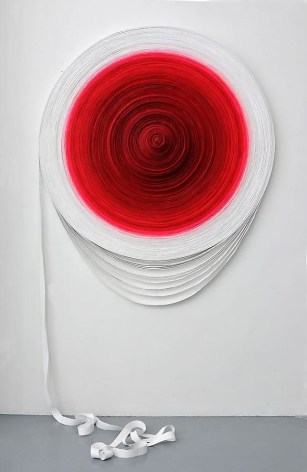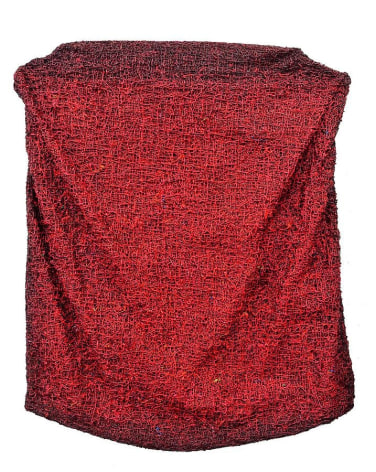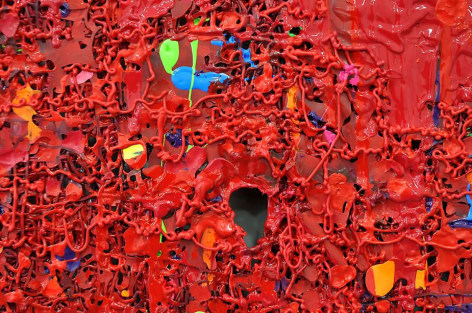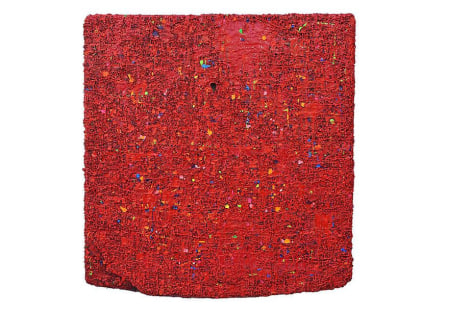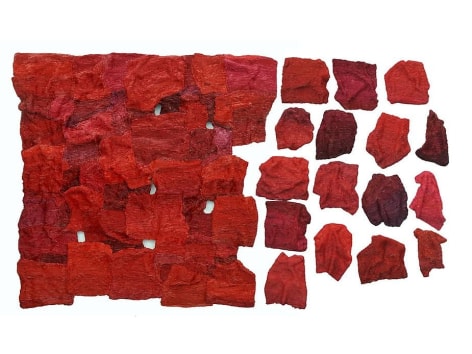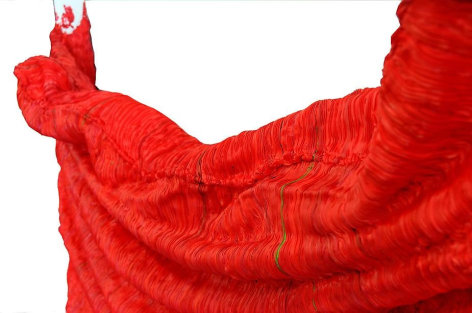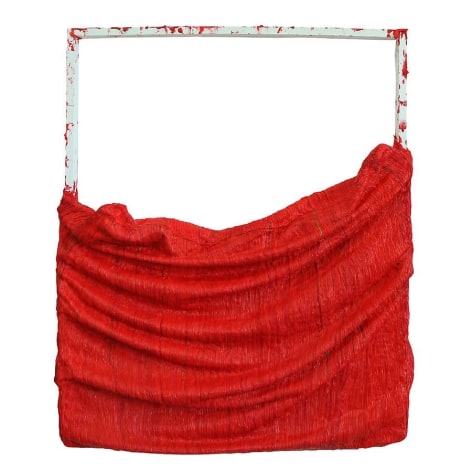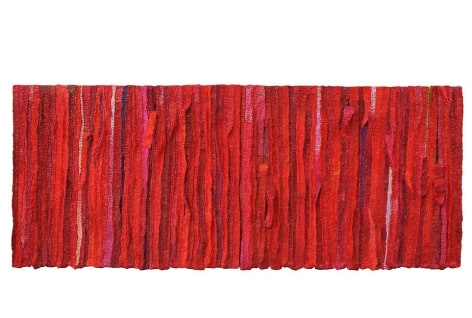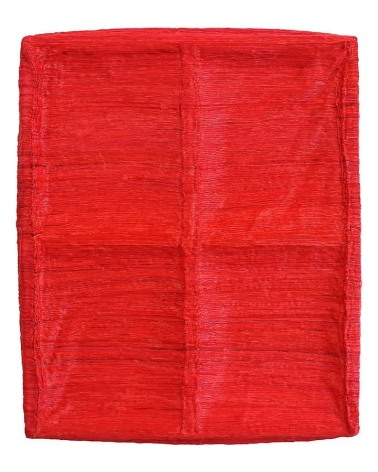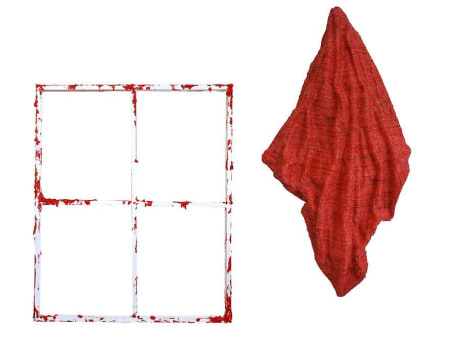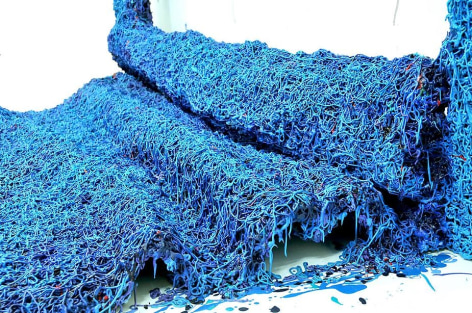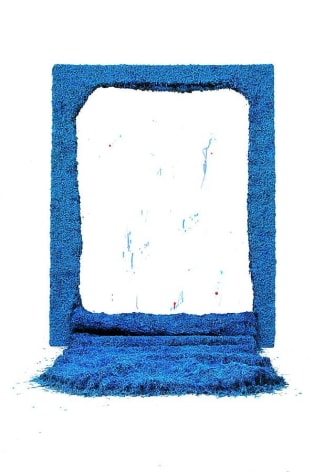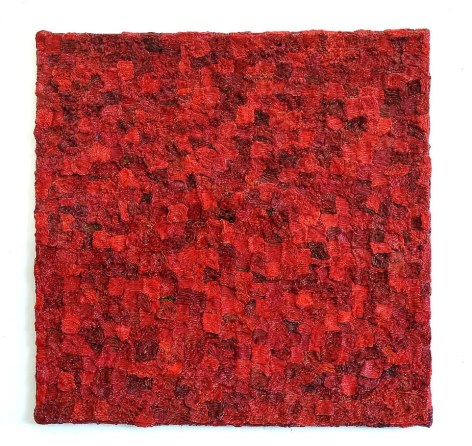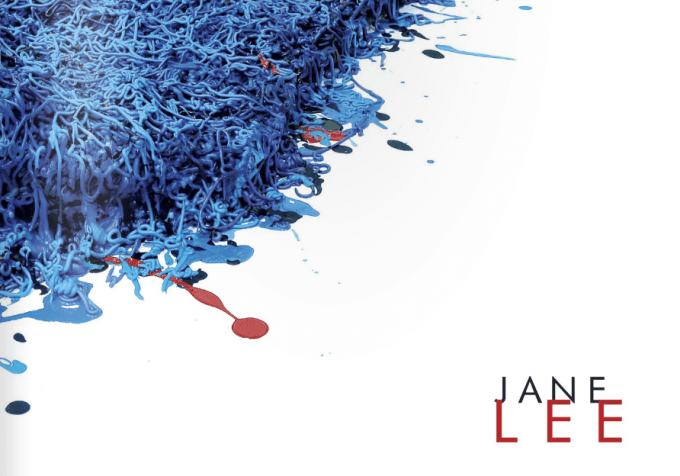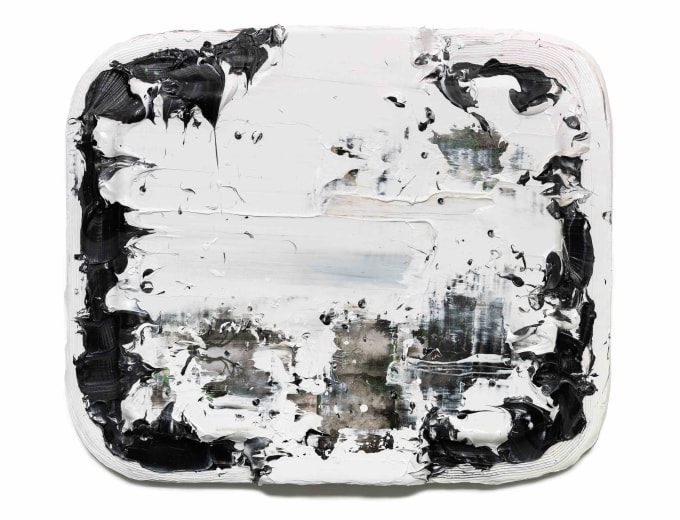
Sundaram Tagore presents the first New York solo exhibition of the work of Jane Lee, one of the most important contemporary artists in Singapore. The show, Jane Lee: Beyond, highlights her innovative techniques and use of materials. Lee works with acrylic, wood and canvas, but she ascribes new roles to these familiar components of a painting.
What constitutes a painting? How are paintings made? How is a painting supported? What happens to a painting when the paint has dried? These are some of the questions that drive Jane Lee’s artistic process. The highly tactile, sensuous surfaces of her works push the materiality of painting into the realm of sculpture, adding a third dimension to the conventionally flat genre. Lee “explores the formal properties of painting and pushes the boundaries of her chosen medium,” says Kwok Kian Chow, director of the Singapore Art Museum.
In Without Canvas, Lee dispenses with canvas altogether as the title implies, putting acrylic paint directly on wooden stretchers, which results in a hollow, three-dimensional object, with the paint at the bottom seemingly giving in to the force of gravity.
For Turned Out II, for which Lee won the Celeste Prize 2011 for painting, she painted long, narrow strips of canvas with acrylic paint then rolled them into a circle, which is mounted on the wall. The resulting object—which resembles a hose or a reel of cord—is more sculpture or wall relief than painting. In this case, the material conventionally used as support for a painting—the canvas—is the focus and defining component of the artwork rather than paint.
Another of Lee’s techniques is to create works that appear to move: they fall, unroll, hang or droop, suggesting, in the process, everyday objects (a hose, a carpet, a door). The paintings are mounted on the wall, the floor, and in the corners of the room. With this strategy of activating the spaces in which her works are being presented, she uses space itself as a medium.
Jane Lee has won numerous awards in addition to the Celeste Prize. She was a finalist for the 2007 Sovereign Art Prize and was the first recipient of the Singapore International Residency Art Prize in 2007. Her work Raw Canvas was showcased at the Singapore Biennale 2008 and Collectors Stage at the Singapore Art Museum in 2011.
Lee holds a BA in fine arts and a diploma in fashion from LASALLE College of the Arts in Singapore. She has participated in numerous exhibitions in museums and galleries in Asia and Europe, among them the Singapore Art Museum, the Hong Kong Arts Centre, and the Contemporary Art Center in Vilnius, Lithuania.
A catalogue with an essay by Tony Godfrey, author of Painting Today (Phaidon, 2009) and former director of research at Sotheby’s Institute of Art, accompanies this exhibition.

